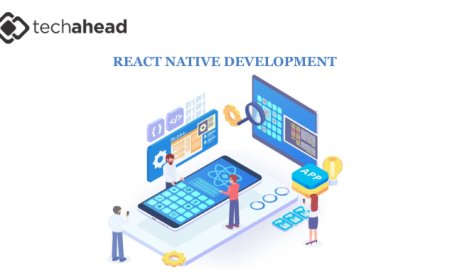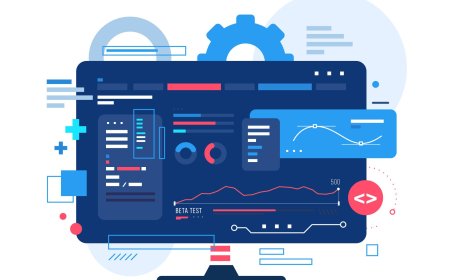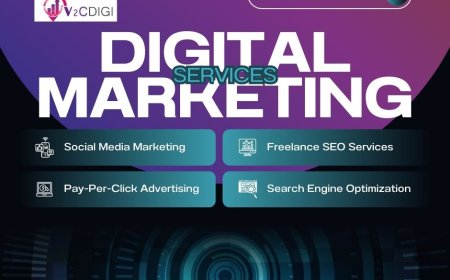Key Skills to Look for in an Outsourced Software Development Team
Outsourcing software development helps businesses cut costs, speed up delivery, and tap into global talent. But choosing the right team is crucial. Whether working with a freelancer or a Software Development Agency, ensure the team has strong technical skills, clear communication, and solid problem-solving abilities. Here’s a quick guide on what to look for before you outsource.

Outsourcing software development has become a widely accepted strategy for startups, SMEs, and large enterprises. It helps businesses cut costs, reduce time-to-market, and access global talent. However, not all outsourcing partnerships are created equal. Choosing the right team can make or break your project. Whether you are working with a freelancer or a Software Development Agency, you need to ensure that the team possesses a balanced mix of technical skills, communication abilities, and problem-solving capabilities.
If youre considering outsourcing, heres a detailed breakdown of the essential skills you should look for in a software development team.
1. Strong Technical Expertise
Lets start with the obvious onetechnical proficiency. The team should have hands-on experience in the technologies that your project demands. This could include web frameworks, programming languages, mobile platforms, databases, APIs, and cloud infrastructure.
Look for:
-
Proficiency in languages such as JavaScript, Python, Java, C#, or Swift depending on your project needs
-
Experience with frameworks like Angular, React, Node.js, .NET, or Django
-
Database management skills (SQL and NoSQL)
-
Cloud platform expertise (AWS, Azure, Google Cloud)
You can check their GitHub repositories, ask for sample projects, or request a technical interview to validate their skills.
2. Problem-Solving and Analytical Thinking
Good developers dont just write codethey solve problems. A quality outsourced team should have a mindset that goes beyond following instructions. They should question requirements when something seems off and suggest better approaches when they exist.
Why this matters:
-
It reduces unnecessary iterations
-
Helps in identifying potential risks early
-
Improves the efficiency and scalability of your software
Ask how theyve handled challenges in past projects. Their answers can reveal a lot about their critical thinking skills.
3. Experience with Similar Projects
While raw skill is vital, having experience in similar domains or projects can be a game changer. It helps reduce the learning curve and ensures that the team is already familiar with industry-specific challenges and best practices.
Evaluate by:
-
Reviewing their portfolio
-
Asking for case studies
-
Looking for relevant client testimonials
Lets say youre building an eCommerce platform. A team that has developed similar platforms before will already know what features are essential, how to implement secure payment gateways, and how to optimize performance under high traffic.
4. Good Communication Skills
Communication is one of the most underestimated factors in software development projects. Its even more crucial in outsourced teams where members are often located in different countries and time zones.
Good communication ensures:
-
Faster clarifications and feedback loops
-
Accurate understanding of requirements
-
Transparent reporting and progress tracking
Check how quickly they respond to your emails or messages. Are their updates clear and easy to understand? Do they ask questions when unsure? These are signs of a communicative and proactive team.
5. Adaptability and Continuous Learning
Technology evolves rapidly. A good outsourced team should demonstrate a willingness to learn and adapt. Whether its switching to a newer framework, integrating a new API, or aligning with changing client requirements, adaptability is key.
Signs of adaptability include:
-
Keeping up with industry trends
-
Suggesting modern solutions over outdated ones
-
Sharing recent certifications or training
This also reflects the teams passion and commitment to delivering long-term value.
6. UI/UX Understanding
Even the most functional software can fall flat if it isnt user-friendly. While you may hire dedicated UI/UX designers, having developers who understand user experience principles is a huge bonus.
Helpful skills include:
-
Mobile-first and responsive design
-
Knowledge of accessibility standards
-
Familiarity with tools like Figma or Adobe XD
This ensures the final product is not only functional but also intuitive and enjoyable to use.
7. Familiarity with Agile Methodologies
Agile isnt just a buzzwordits a proven approach to modern software development. Teams that follow Agile frameworks like Scrum or Kanban offer more flexibility, faster iterations, and continuous feedback integration.
Agile teams offer:
-
Regular sprints and updates
-
Clear backlog and prioritization
-
Better alignment between business and tech goals
You should also ask whether the team uses tools like Jira, Trello, or Asana to manage tasks and monitor progress.
8. Code Quality and Version Control
Poor code quality can lead to performance issues, bugs, and maintainability nightmares. Thats why your outsourced team should follow best practices when it comes to writing clean, modular, and reusable code.
Key practices include:
-
Code reviews and pair programming
-
Writing unit and integration tests
-
Using version control systems like Git
Its also good to ask about their deployment and rollback procedures. This ensures your production environment remains stable, even during frequent updates.
9. Security and Data Protection
With increasing cyber threats, security is non-negotiable. Your outsourced team must understand how to build secure applications that comply with relevant data protection regulations.
Look for teams that:
-
Follow OWASP security practices
-
Understand GDPR, HIPAA, or other applicable regulations
-
Use secure authentication and encryption techniques
This becomes even more critical for industries like healthcare, fintech, or eCommerce, where sensitive user data is involved.
10. Collaboration and Team Spirit
Even if youre outsourcing to a single vendor, chances are theyll work with your in-house team or other stakeholders. This requires a collaborative spirit. They should be open to feedback, align with your vision, and work seamlessly across different time zones and cultures.
Check how they:
-
Handle cross-functional communication
-
Manage remote collaboration tools (Slack, Zoom, MS Teams)
-
Integrate with third-party vendors or existing teams
Its about being a true partner, not just a vendor delivering code.
11. Domain Knowledge and Business Acumen
When developers understand your business, they can offer better solutions. They wont just develop what you askedtheyll build what you actually need. This is where teams offering Software Consulting Services stand out.
Why domain knowledge matters:
-
It speeds up onboarding and requirement gathering
-
Improves product-market fit
-
Reduces unnecessary features or costs
If your app is for logistics, fintech, or healthcare, domain-aware teams can bring valuable insights to the table.
12. Transparent Pricing and Contracts
A professional outsourced team will always provide clear pricing, project scope, timelines, and deliverables. Avoid vendors that overpromise and underdeliver. Transparency builds trust and long-term collaboration.
Watch for:
-
Detailed proposals and SLAs
-
Flexible engagement models
-
Well-defined payment schedules
This will help you avoid scope creep and unexpected expenses down the line.
Final Thoughts
Outsourcing software development is not just about finding someone who can code. Its about partnering with a team that understands your goals, communicates well, delivers quality, and adapts with changing needs. Take the time to evaluate their technical skills, soft skills, and business understanding.
A capable outsourced team doesnt just build your app. They help you grow, innovate, and stay ahead in your industry. Thats why many organizations now rely on Enterprise Software Development Services to build scalable and robust digital products.
So, when youre ready to make that call, use this list as your checklist. It can save you time, money, and a whole lot of stress in the long run.
FAQs
Q1. Why should I consider outsourcing software development?
Outsourcing helps you access global talent, reduce costs, and speed up development. It allows you to focus on your core business while experts handle your technical needs.
Q2. What are the most important technical skills in an outsourced development team?
Key technical skills include proficiency in programming languages (e.g., JavaScript, Python), experience with frameworks (e.g., React, Node.js), database management, and familiarity with cloud platforms like AWS or Azure.
Q3. How do I evaluate the problem-solving skills of a development team?
You can assess this by asking how they handled past challenges, reviewing case studies, or conducting technical interviews where they explain their decision-making process.
Q4. What is the role of Agile in outsourced development?
Agile methodologies allow for flexible development, frequent feedback, and better collaboration. An Agile team can adapt quickly to changing requirements and deliver updates in smaller, manageable iterations.
Q5. How do I ensure the outsourced team follows security best practices?
Ask about their experience with secure coding, compliance with standards like GDPR or HIPAA, and their use of tools and practices like encryption, authentication, and regular security audits.
Q6. How do I know if an outsourced team is the right fit for long-term collaboration?
Look for teams that align with your culture, offer consistent communication, show commitment to your goals, and demonstrate a proactive approach to development and problem-solving.



















































